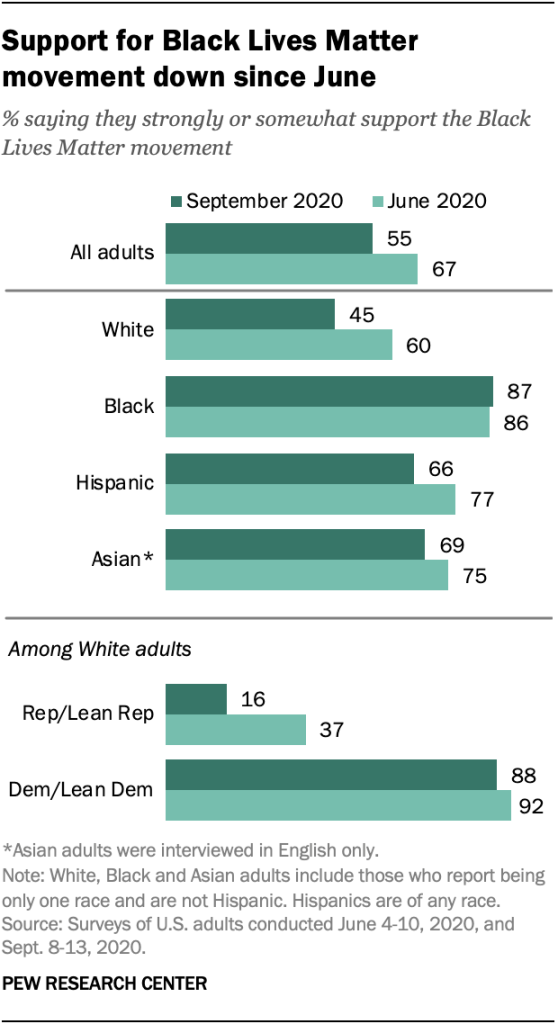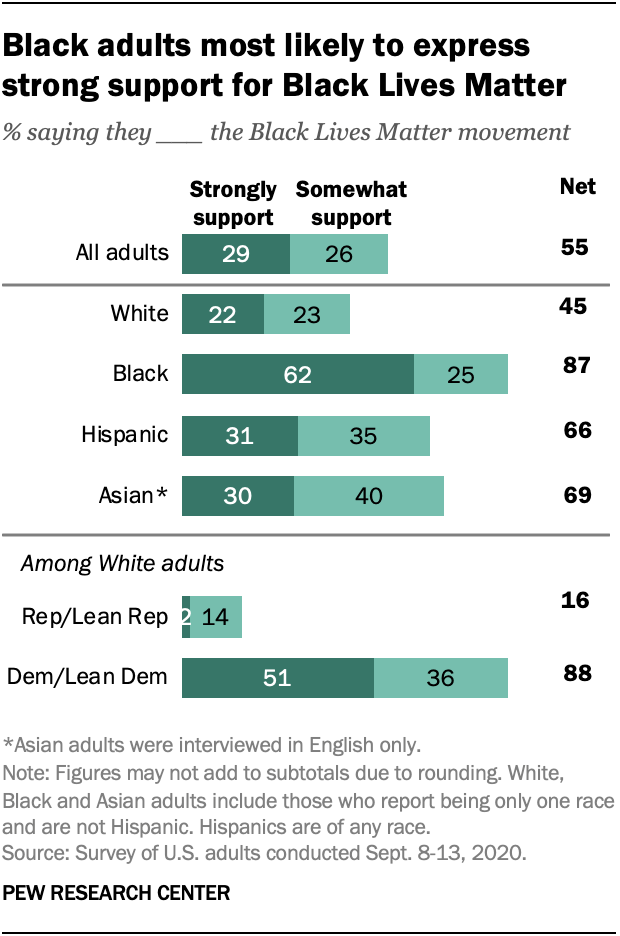
Note: For the latest data on this topic, read our 2022 blog post.
As racial justice protests have intensified following the shooting of Jacob Blake, public support for the Black Lives Matter movement has declined, according to a new Pew Research Center survey. A majority of U.S. adults (55%) now express at least some support for the movement, down from 67% in June amid nationwide demonstrations sparked by the death of George Floyd. The share who say they strongly support the movement stands at 29%, down from 38% three months ago.
Pew Research Center conducted this study to understand how Americans’ attitudes toward the Black Lives Matter movement have changed since George Floyd’s death. The data was collected as part of larger surveys conducted June 4-10 among 9,654 U.S. adults and Sept. 8-13 among 10,093 adults. Everyone who took part is a member of the Center’s American Trends Panel (ATP), an online survey panel that is recruited through national, random sampling of residential addresses. This way nearly all U.S. adults have a chance of selection. The survey is weighted to be representative of the U.S. adult population by gender, race, ethnicity, partisan affiliation, education and other categories. Read more about the ATP’s methodology.
Here are the questions used for this analysis, along with responses, and its methodology.

The Black Lives Matter movement has been back in the spotlight due to this summer’s protests. The new survey findings come as confrontations between protesters and police have escalated in some cities and as President Donald Trump has stepped up his criticism of the movement.
The recent decline in support for the Black Lives Matter movement is particularly notable among White and Hispanic adults. In June, a majority of White adults (60%) said they supported the movement at least somewhat; now, fewer than half (45%) express at least some support. The share of Hispanic adults who support the movement has decreased 11 percentage points, from 77% in June to 66% today. By comparison, support for the Black Lives Matter movement has remained virtually unchanged among Black and Asian adults.
Support for the Black Lives Matter movement remains particularly widespread among Black adults. Some 87% of Black Americans say they support the movement, similar to the share who said this in June. However, the share of Black adults expressing strong support for the movement has decreased 9 points, from 71% to 62%.

The partisan divide in support for the Black Lives Matter movement – which was already striking in June – has widened even more. Among Republicans and those who lean to the Republican Party, about two-in-ten (19%) now say they support the movement at least somewhat, down from four-in-ten in June. The share of Democrats and Democratic leaners who support the movement (88%) has not changed considerably.
The partisan gap is similar among White adults. About nine-in-ten White Democrats (88%) express at least some support for the Black Lives Matter movement, compared with 16% of White Republicans. And while about half of White Democrats (51%) say they strongly support the movement, just 2% of White Republicans say the same.
Note: Here are the questions used for this analysis, along with responses, and its methodology.
CORRECTION (October 2020): The methodology section has been updated to reflect the correct cumulative response rate. None of the study findings or conclusions were affected.



